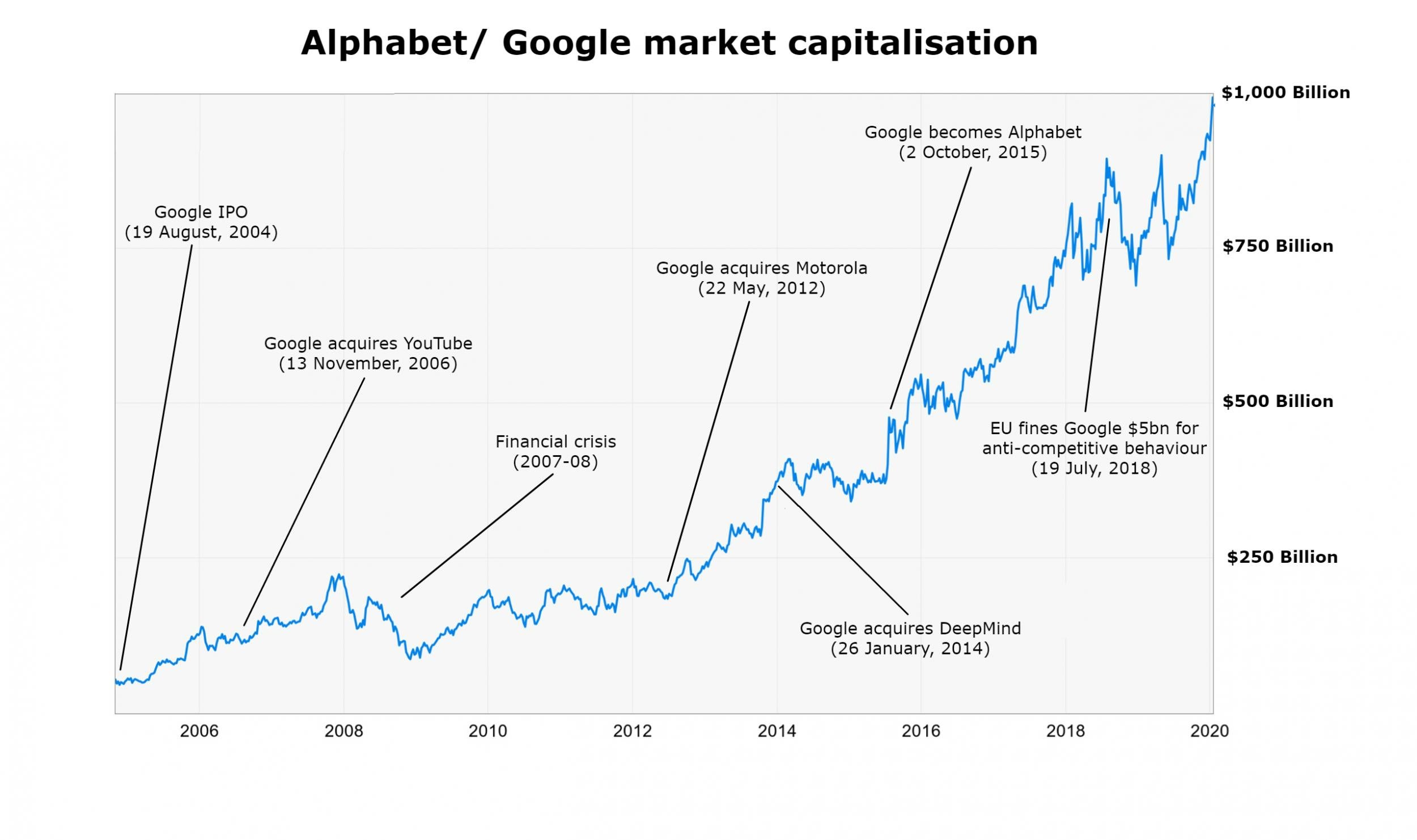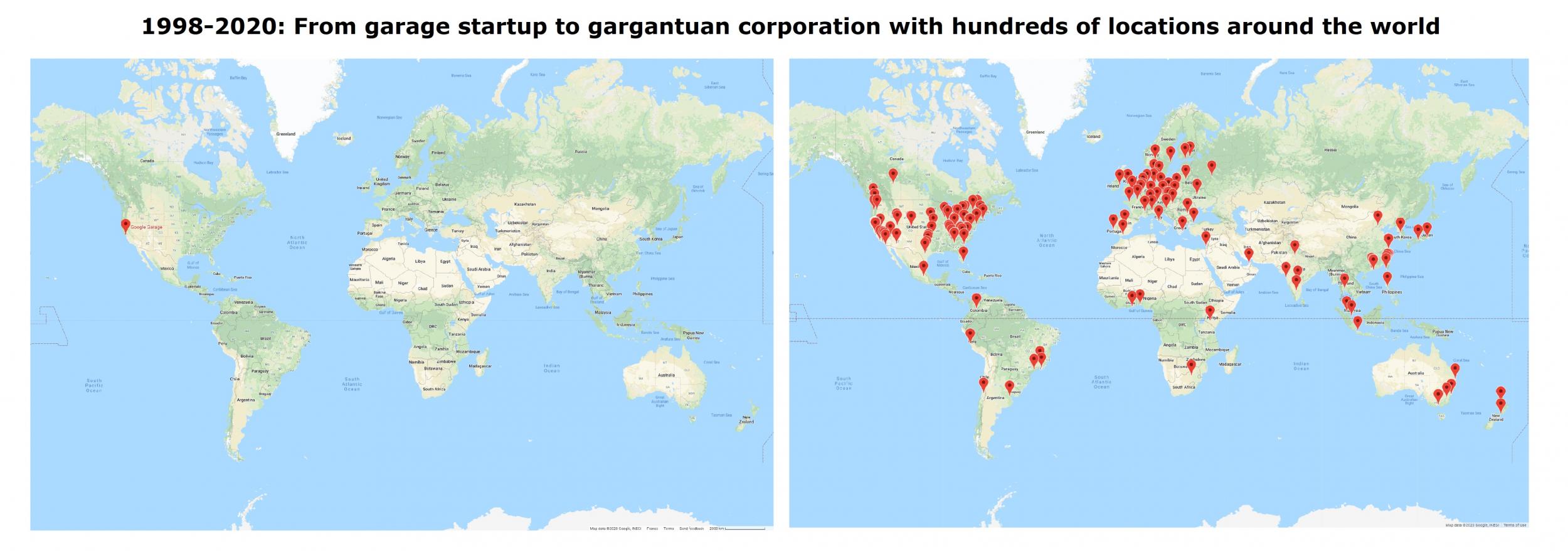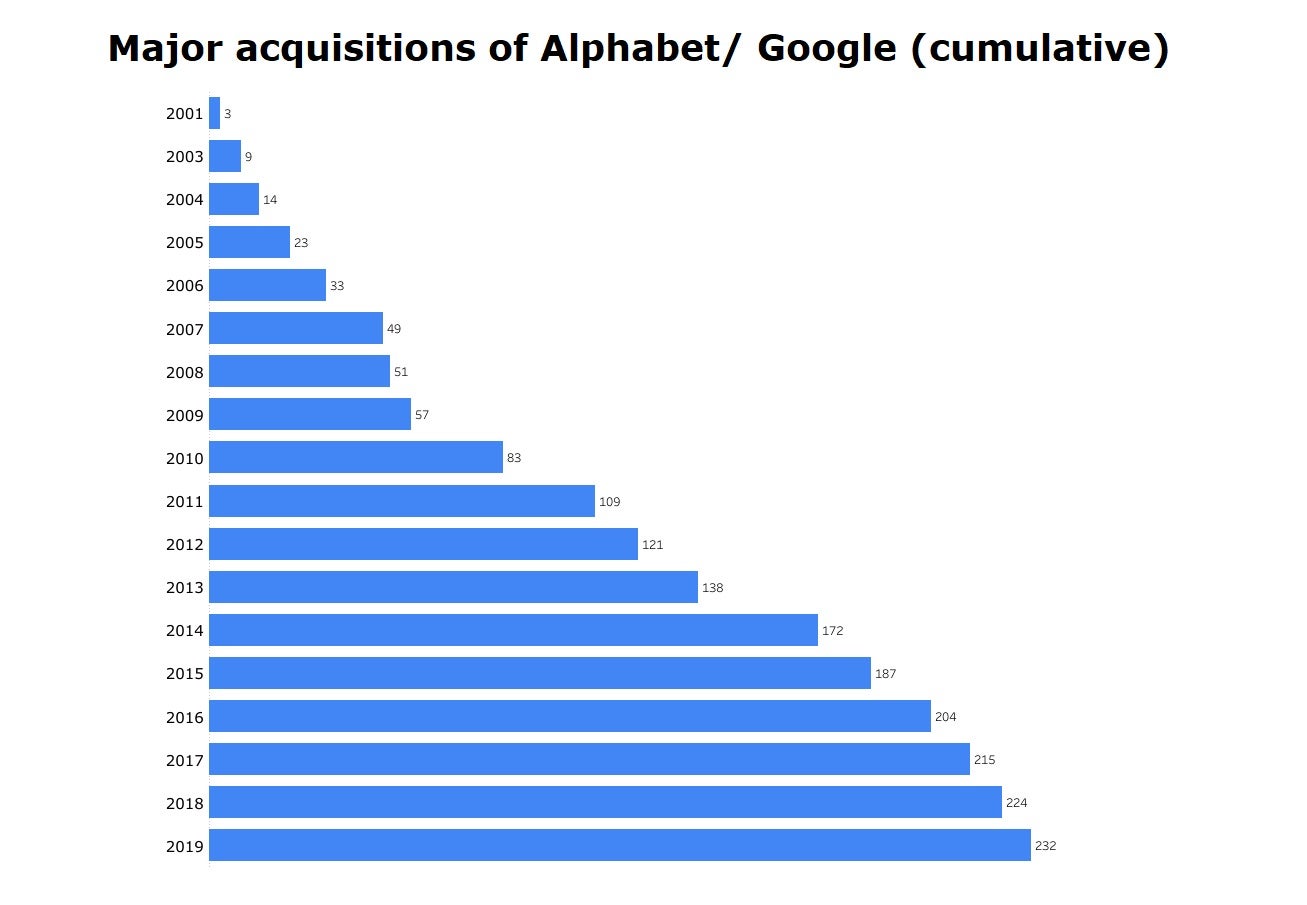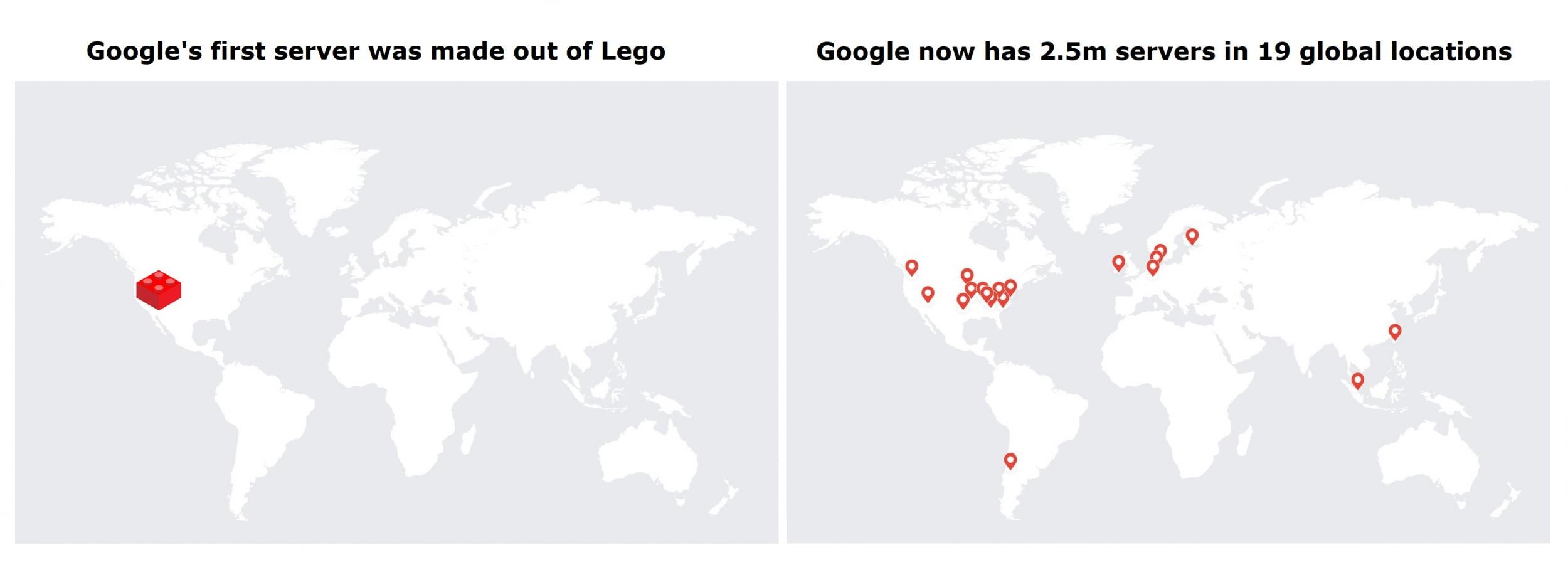Google at a trillion dollars: How a garage startup morphed into an omnipresent leviathan
'They’ve bulldozed competition, used our private information for profit, and tilted the playing field against everyone else,' argued Elizabeth Warren

Your support helps us to tell the story
From reproductive rights to climate change to Big Tech, The Independent is on the ground when the story is developing. Whether it's investigating the financials of Elon Musk's pro-Trump PAC or producing our latest documentary, 'The A Word', which shines a light on the American women fighting for reproductive rights, we know how important it is to parse out the facts from the messaging.
At such a critical moment in US history, we need reporters on the ground. Your donation allows us to keep sending journalists to speak to both sides of the story.
The Independent is trusted by Americans across the entire political spectrum. And unlike many other quality news outlets, we choose not to lock Americans out of our reporting and analysis with paywalls. We believe quality journalism should be available to everyone, paid for by those who can afford it.
Your support makes all the difference.In 1999, Larry Page and Sergey Brin offered to sell Google to a rival internet search engine for $750,000.
The pair were working out of a two-car garage in suburban California at the time, using a computer server made out of Lego. Yet despite their modest circumstances, they claimed to have found a way to make the world’s information "universally accessible and useful” – and they wanted to cash in.
The suitor was Excite – at the time the world’s second biggest search engine, topped only by Yahoo! – but CEO George Bell decided it wasn’t worth it.
“I think the decision we made at the time, with what we knew, was a good decision,” Bell said in a 2015 interview. “It’s laughable to say that now, I suppose.”
Within five years of the $750,000 deal falling through, Google was going public at a valuation of $23 billion. Just over 20 years later, it is now worth $1 trillion.

For some, it is one of the greatest success stories of free-market capitalism of the 21st century. For others, it is one of the greatest failures: an out-of-control and insidious leviathan whose original aim of providing people with information has been perverted by profit-seeking towards a new objective of instead taking people’s information.
For 20 years, the most famous phrase in Google’s corporate philosophy was “Don’t be evil”. But in 2018, amid privacy scandals and antitrust allegations, the company quietly removed the preface from its corporate code of conduct.
The company is no longer simply a search engine, having long ago mutated into a technology giant encompassing everything from ultra-powerful artificial intelligence, to drone delivery services.
It is also no longer just called Google, after a 2015 restructuring saw it become a subsidiary of Alphabet.

Under this umbrella, the company now has near-monopolies in almost every aspect of online life. Its Chrome web browser has a 63 per cent market share, while its Android mobile operating system is used on nearly 90 per cent of all smartphones.
Its maps tell people how to get places, its email service allows people to communicate, and its music and video app is the most popular entertainment platform in the world.

And all of this seemingly for free. But as the adage states: “If you’re not the customer, you’re the product.”
Google is one of two companies – alongside Facebook – that together take more than half of all digital advertising money, much of which is acquired through targeting web users with ads using personal data they’ve collected.
The company's rise has inevitably led to privacy concerns, fuelled by various data breaches and scandals in recent years. The company was the first to be targeted by regulators under the EU’s General Data Protection Regulation (GDPR), leading to a €50m (£44m) fine in 2019. (One year before it was also at the receiving end of the EU's largest every fine: $5 billion for antitrust violations.)
Privacy International warned last year that Google is creating a “surveillance-as-a-default environment” that is “harmful to personal dignity and identity and leads to discrimination and exclusion”.

The enormous power and reach of Google has led to calls for it to be broken up, with Democratic candidate Elizabeth Warren among those claiming it has grown too big.
“Today’s big tech companies have too much power over our economy, our society, and our democracy,” She wrote in a blog post last year. “They’ve bulldozed competition, used our private information for profit, and tilted the playing field against everyone else.”
Last month, Brin and Page formally ceded control by stepping down as the heads of the company, saying in a letter to Alphabet shareholders they were “deeply humbled" by the growth of their "small research project". But even without them, and despite the ever-circling scandals and threats of regulation, their creation shows no sign of slowing down.
Join our commenting forum
Join thought-provoking conversations, follow other Independent readers and see their replies
Comments